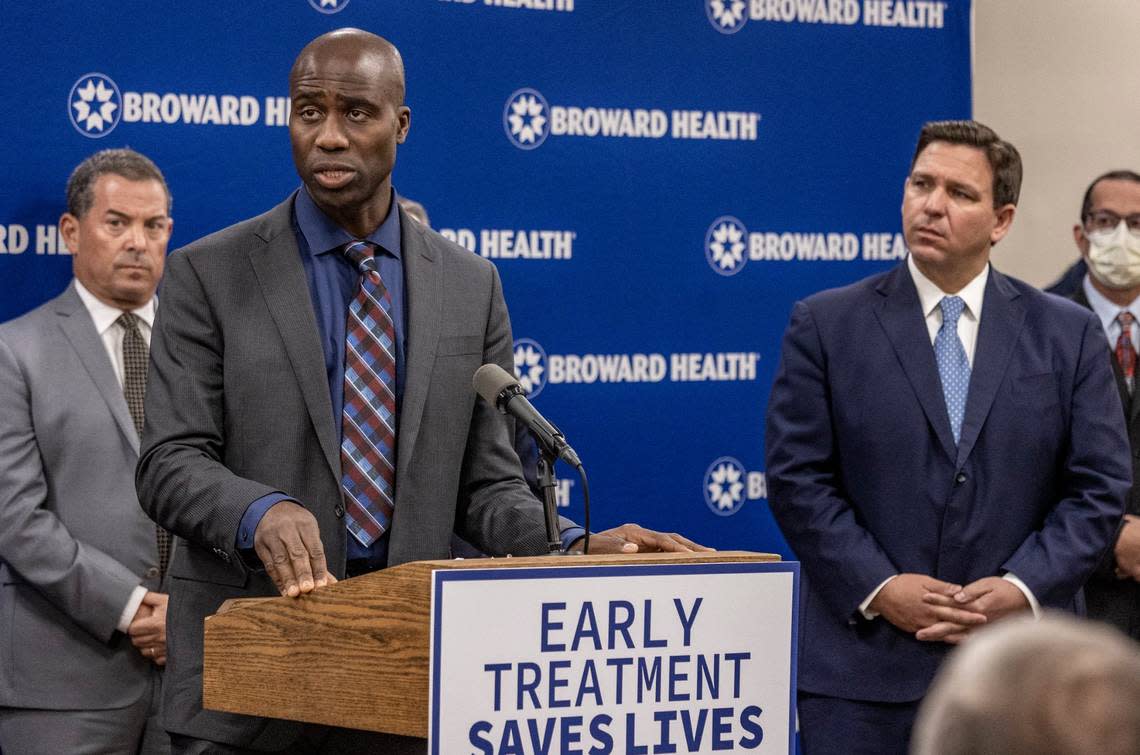Healthcare ‘equity’ was a Florida priority until the DeSantis administration erased it

In 2017, when Florida Department of Health officials crafted their once-every-five-years list of state health goals, they published what was then a noncontroversial top priority: improving health equity.
The state sought to home in on “avoidable inequalities, historical and contemporary injustices, and the elimination of health and health care disparities.” Improving health equity “provides the foundation for success in all the other health-issue priorities,” the 2017 report read.
When the state reconvened in 2022 to release its new set of state health goals, its governor and surgeon general had changed. So had its priorities. No longer was equity the plan’s top priority area — or a listed priority at all.
Instead, the No. 1 priority area had to do with fighting Alzheimer’s disease. The sixth priority area mentioned “social and economic conditions impacting health,” but did not include any mention of race or ethnicity. Although the 22-page state health improvement plan lists correcting certain race-specific health outcomes as goals, the document makes no mention of “equity.”
READ MORE: House Republicans want to force an end to current treatment for transgender minors
In an interview, Surgeon General Joseph Ladapo said the term “health equity” has taken on a political meaning that is unhelpful in addressing important health issues related to race or ethnicity.
“It’s an imprecise term,” said Ladapo, who leads the Department of Health. “It’s a term that really has grown to have more of a political meaning than a meaning related to health. But it’s the State Health Improvement Plan. So we will focus on health.”
The change in priorities comes as the DeSantis administration takes aim at diversity, equity and inclusion efforts across the state — particularly in public schools. Lawmakers are likely to pass legislation that would ban state colleges and universities from spending money on diversity, equity and inclusion initiatives, which Republican leaders say are divisive and politically motivated.
Different races have different health outcomes
Studies do show that people of different races experience different health outcomes.
According to 2020 numbers from the Kaiser Family Foundation, Black Floridians are about 30% more likely to die of heart disease than their white peers. They’re more than twice as likely to die of diabetes.
The State Health Improvement Plan under Gov. Ron DeSantis notes that Alzheimer’s — the state’s new No. 1 priority — is about twice as likely to affect Black people, and about 1.5 times as likely to affect Hispanics as it is white people. But its Alzheimer’s-related goals are aimed at fighting the disease broadly, not at any disparity.
Haywood Brown, a professor of obstetrics and gynecology and the senior associate vice president of faculty and academic affairs for USF Health, has been working in health equity for four decades. He said whether the plan includes the word “equity” or not, it is part of planning a healthier state.
For example, expanding healthcare access to poorer rural communities would make the state healthier, Brown said. That work by necessity is geared toward health equity, because it corrects a disparity — that often correlates with race or ethnicity — between those who can afford routine health checkups and those who can’t.
Discussions of health equity need not be political, Brown said, even if some politicians have tried to make them so. Health inequality is simply a reality, he said.
“You can’t wipe out a goal of health equity by not mentioning it,” Brown said.
Prioritizing breast, prostate cancer diagnoses for Black people
The DeSantis administration’s State Health Improvement Plan includes objectives to correct a few specific disparities. By 2026, the state aims to “reduce the percentage of late-stage breast cancer diagnoses among Black women from 43% (2018) to 30%.” There’s a similar goal for reducing prostate cancer diagnoses among Black men, and for cutting the Black pregnancy and infant mortality rates.
In 2021, lawmakers unanimously passed — and DeSantis signed — a bill creating the Office of Minority Health. That bill mandated that each Florida county have a minority health liaison. Each Florida county department of health also has a Health Equity Plan.
Even if health inequities aren’t mentioned as a priority area in the State Health Improvement Plan, Brown said, “They are in the plan. They are surely in the plan.”
